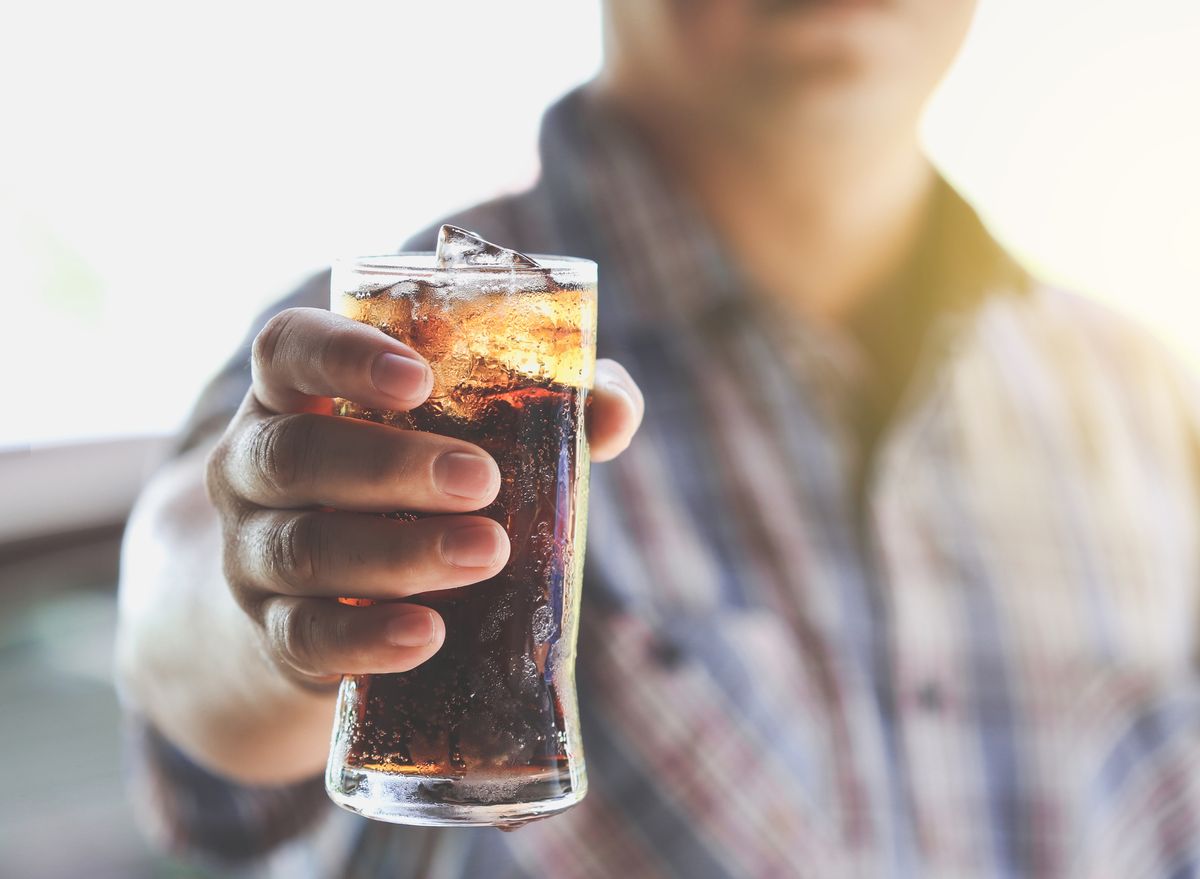Nurturing a healthy gut is essential for overall well-being, necessitating diligent care. Notably, the immune system's vitality relies on gut health, and scientific studies have revealed a correlation between an imbalanced gut microbiome and autoimmune disorders. Moreover, research suggests that the gut microbiome influences the central nervous system, which governs brain function. While certain foods are recommended for gut health, it's crucial to be aware of the beverages that can have a detrimental impact on it.
Consuming the wrong types of drinks can potentially harm your gut. These beverages often contain excessive sugar, artificial sweeteners, high acidity levels, or other ingredients that may disrupt your gut's tranquility and hinder digestion. To shed light on this matter, we consulted with dietitians who explained why these beverages should be minimized in your diet and how regularly consuming them can inflict immediate and long-lasting damage on your gut.
It's worth noting that moderate consumption of many of these beverages is generally safe and may not cause adverse effects. Additionally, some individuals may experience negative reactions to these drinks due to sensitivity. If you have concerns about how any of the beverages mentioned below may affect your health, it's advisable to consult a medical professional.
1) Sweet Tea
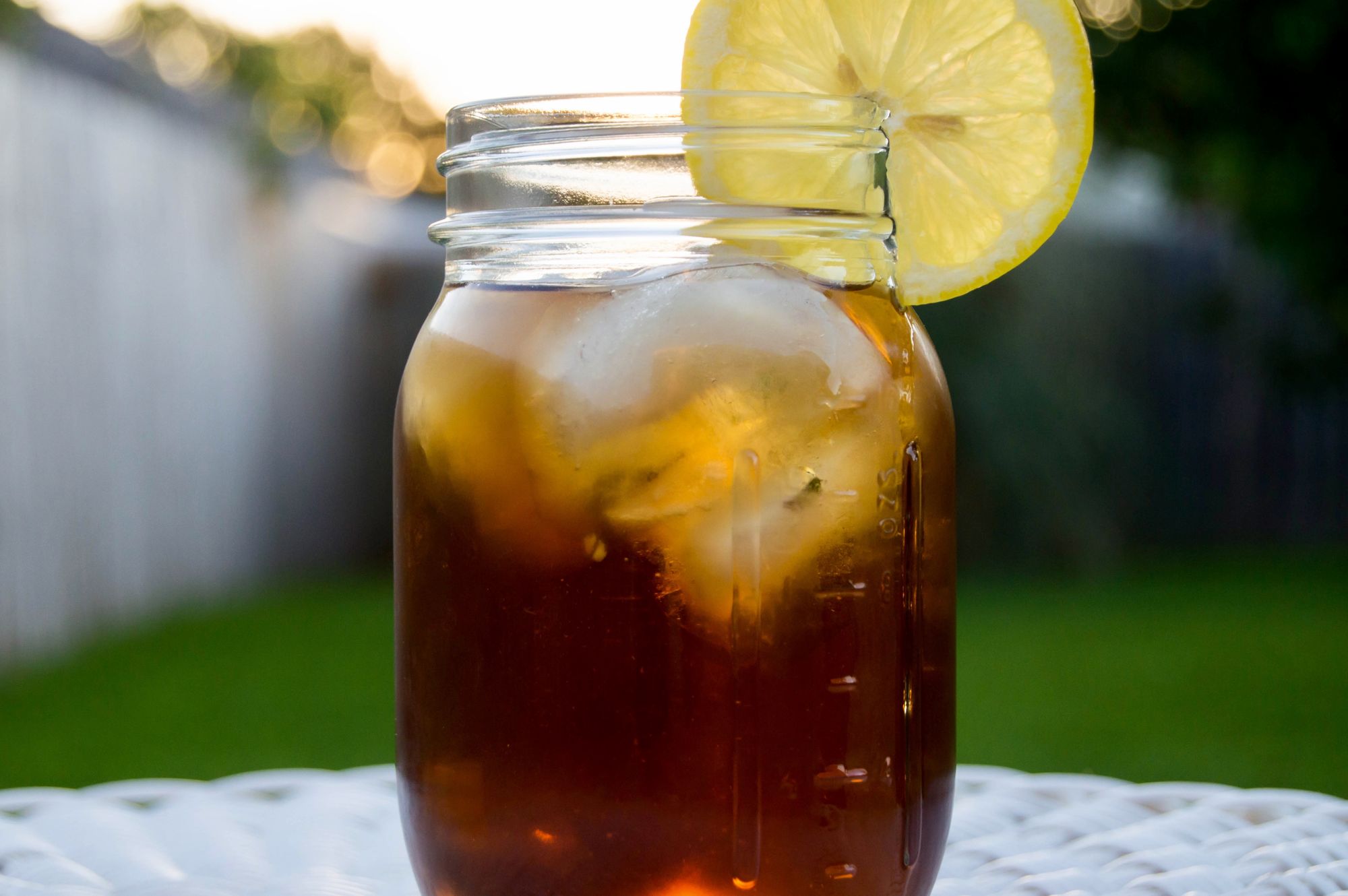
Renowned nutrition expert Toby Amidor, MS, RD, CDN, FAND, who is the author of The Family Immunity Cookbook and has been recognized for his expertise, highlights some of the most detrimental drinks for gut health, particularly those laden with added sugar, such as lemonade and sweetened iced tea.
Amidor explains, "A study published in 2020 revealed that a high-sugar diet can trigger inflammation and disrupt the balance between beneficial and harmful gut microbiota, leading to potential health issues."
When you have a craving for a refreshing and sweet beverage, it's advisable to choose 100% fruit juice without any additional sugar. This way, you can satisfy your desire while promoting better gut health.
2) Sugary Juice
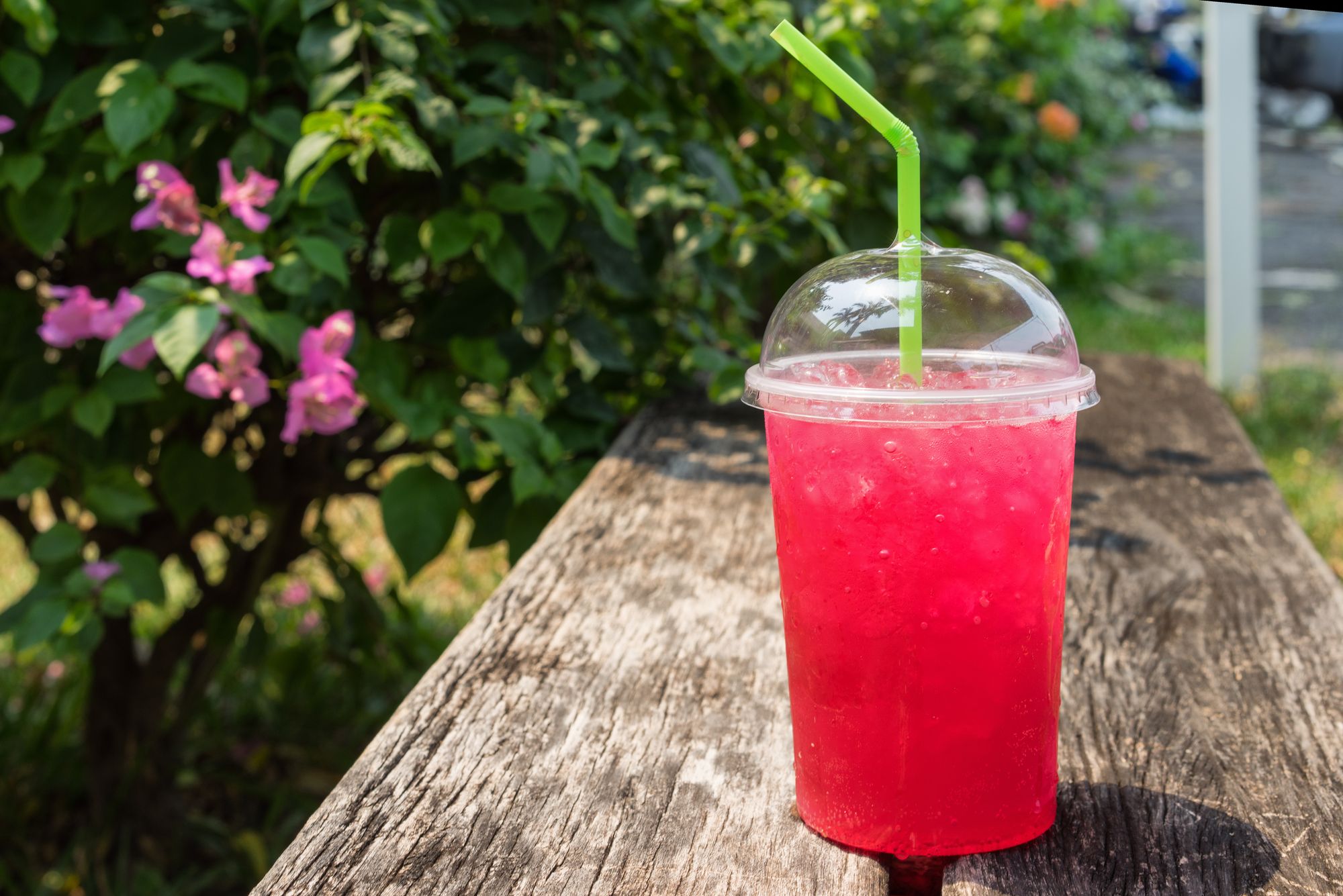
When it comes to sugar, another beverage that deserves attention for its potential impact on gut health is juice containing added sugar.
Amidor emphasizes, "Beverages that primarily consist of added sugar without any nutritional value can disrupt the equilibrium of the gut microbiome, favoring the proliferation of 'bad' bacteria." He suggests, "If you decide to have juice, opt for 100% fruit or vegetable juice instead. These options provide essential vitamins, minerals, and phytonutrients, and contribute towards meeting your daily recommended intake of fruits and vegetables." By choosing natural, unadulterated juices, you can still enjoy the benefits of valuable nutrients while supporting your gut health.
3) Energy Drinks
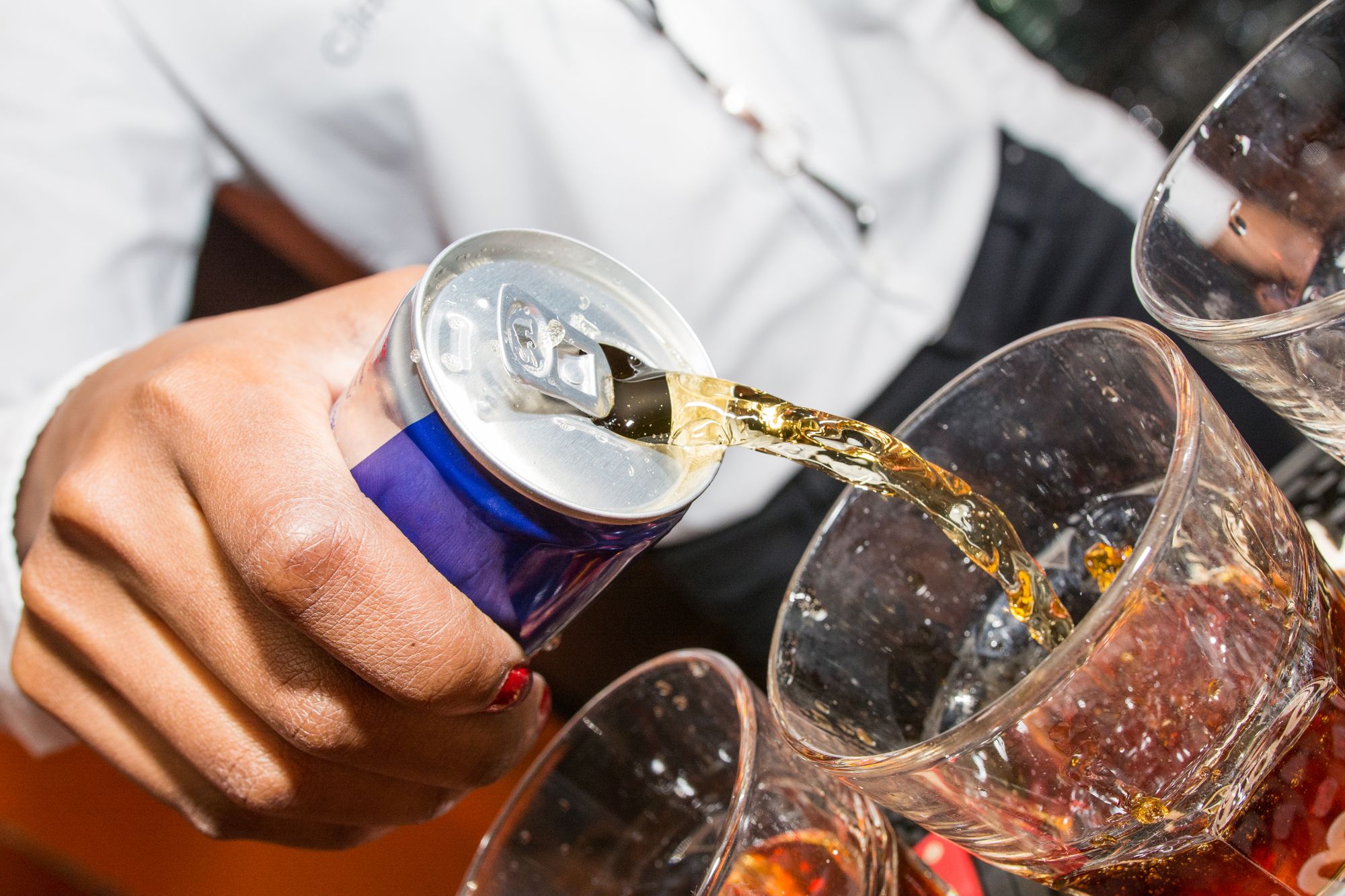
Before reaching for energy drinks to combat fatigue, it's essential to reconsider your choice. Lauren Harris-Pincus, MS, RDN, the founder of NutritionStarringYOU.com and author of The Protein-Packed Breakfast Club, warns that energy drinks containing high levels of caffeine can have detrimental effects on gut health. Pincus explains that these beverages can cause gastritis, inflammation, heightened gut motility, and diarrhea. The excessive caffeine content prompts the stomach to produce more acid than usual, aggravating reflux symptoms. Additionally, it can induce jitters and increase anxiety, which can worsen symptoms for individuals with irritable bowel syndrome (IBS).
4) Coffee
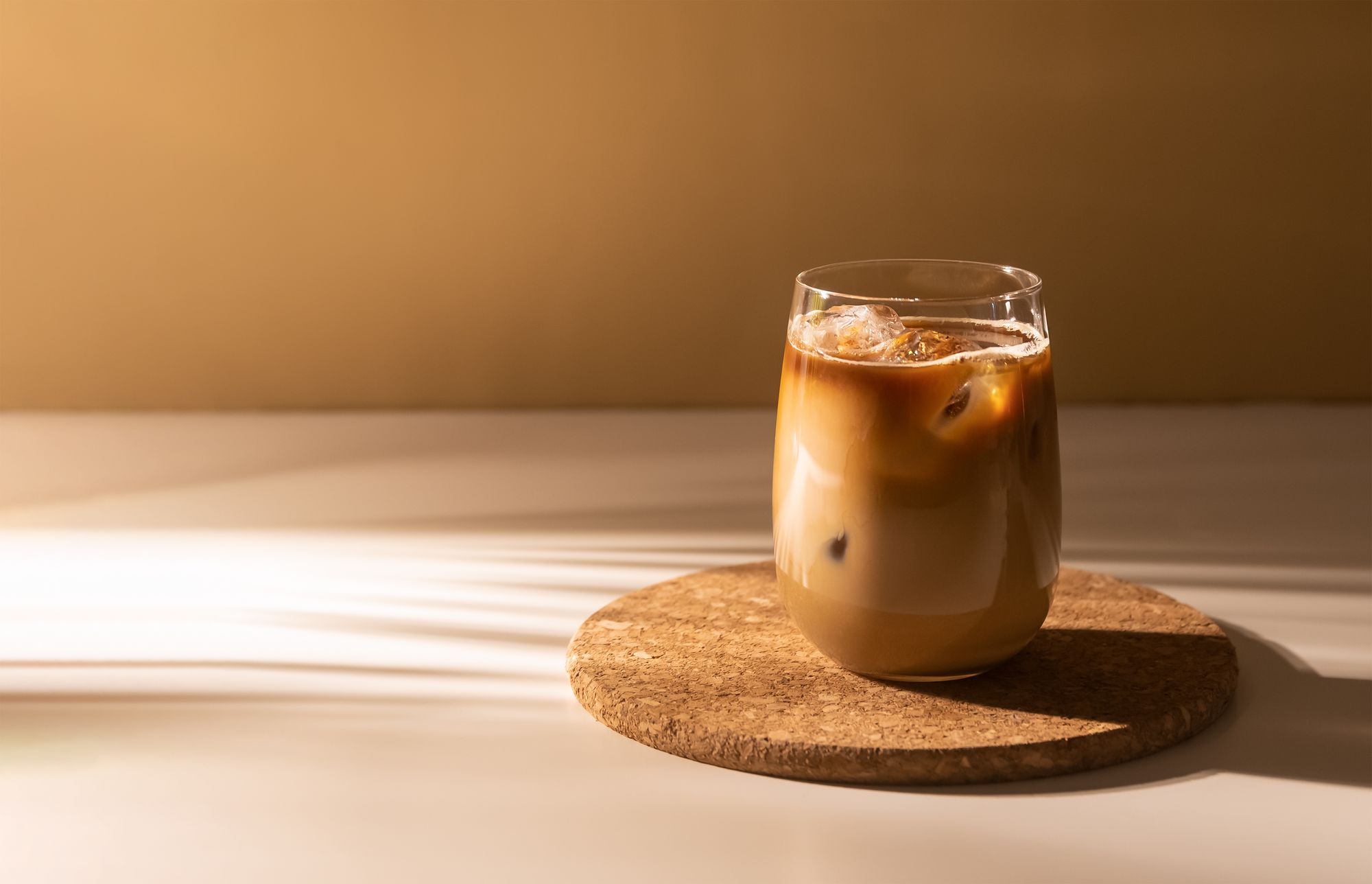
Caffeinated beverages, such as coffee, act as stimulants that accelerate gut motility, leading to quicker movement of contents through the gastrointestinal tract. However, this stimulant effect can result in loose stools or diarrhea, potentially leading to dehydration. Moreover, caffeine has mild diuretic properties, increasing the frequency of urination. Additionally, caffeine can exacerbate anxiety, stress levels, disrupt sleep patterns, and worsen symptoms in individuals with irritable bowel syndrome (IBS) or inflammatory bowel disease (IBD).
The FDA recommends a maximum daily caffeine intake of 400 milligrams, equivalent to approximately three cups of coffee. However, caffeine affects individuals differently, as metabolism rates may vary. If you reduce your coffee consumption or switch to decaffeinated options, it can help alleviate some of these symptoms. While moderate coffee consumption can offer health benefits, excessive intake can contribute to gut-related issues.
5) Regular Soda
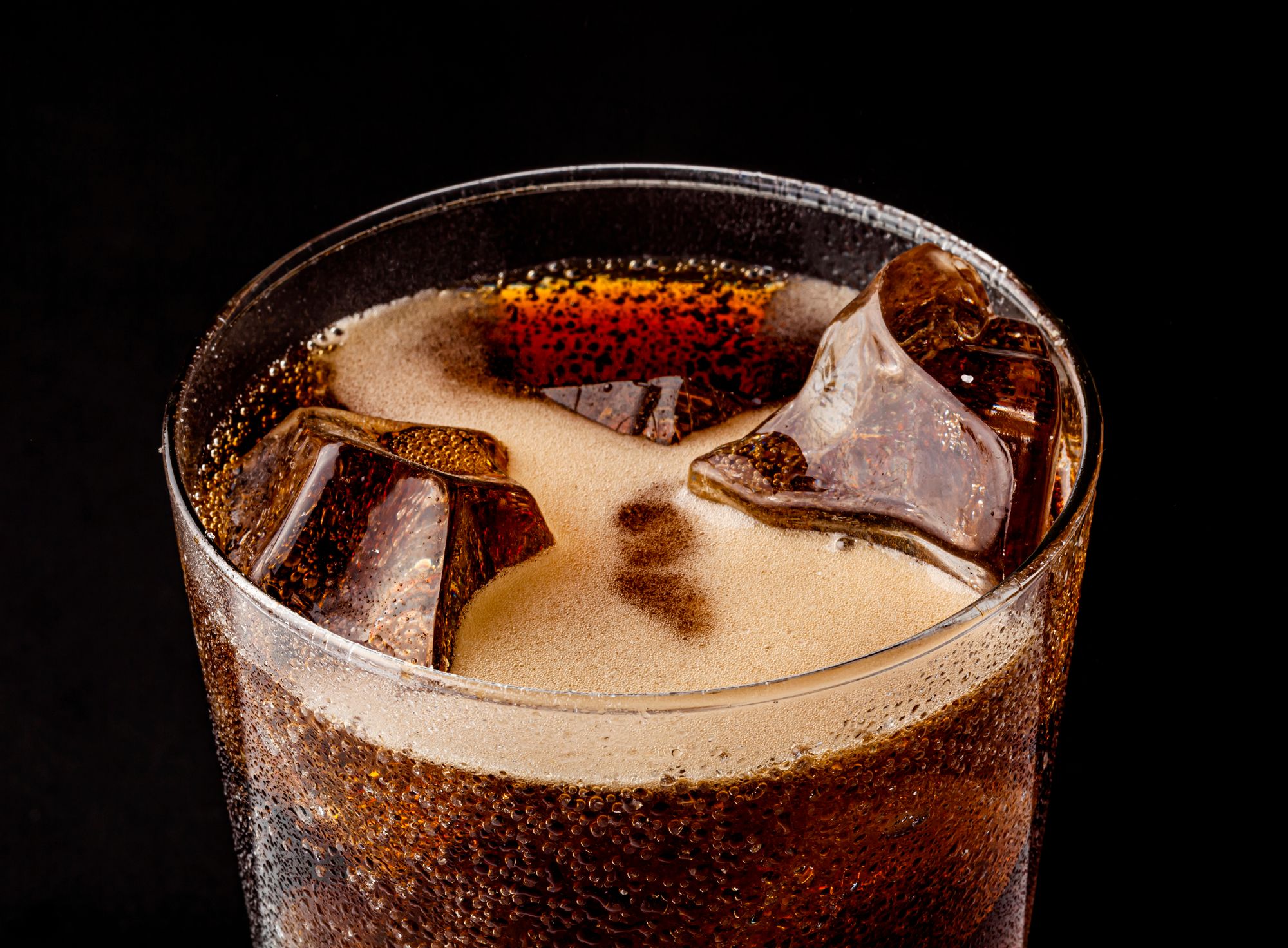
Individuals with IBS or IBD may experience gastrointestinal discomfort when consuming significant amounts of refined sugars, such as those found in soda. These sugars might not be effectively absorbed by the intestines, resulting in the drawing of water into the gastrointestinal tract and bowel to dilute and flush out the excess sugars. This can contribute to the occurrence of loose stools and diarrhea. Furthermore, research indicates that excessive sugar intake can disrupt the balance of the gut microbiome, potentially leading to further complications.
6) Carbonated Beverages
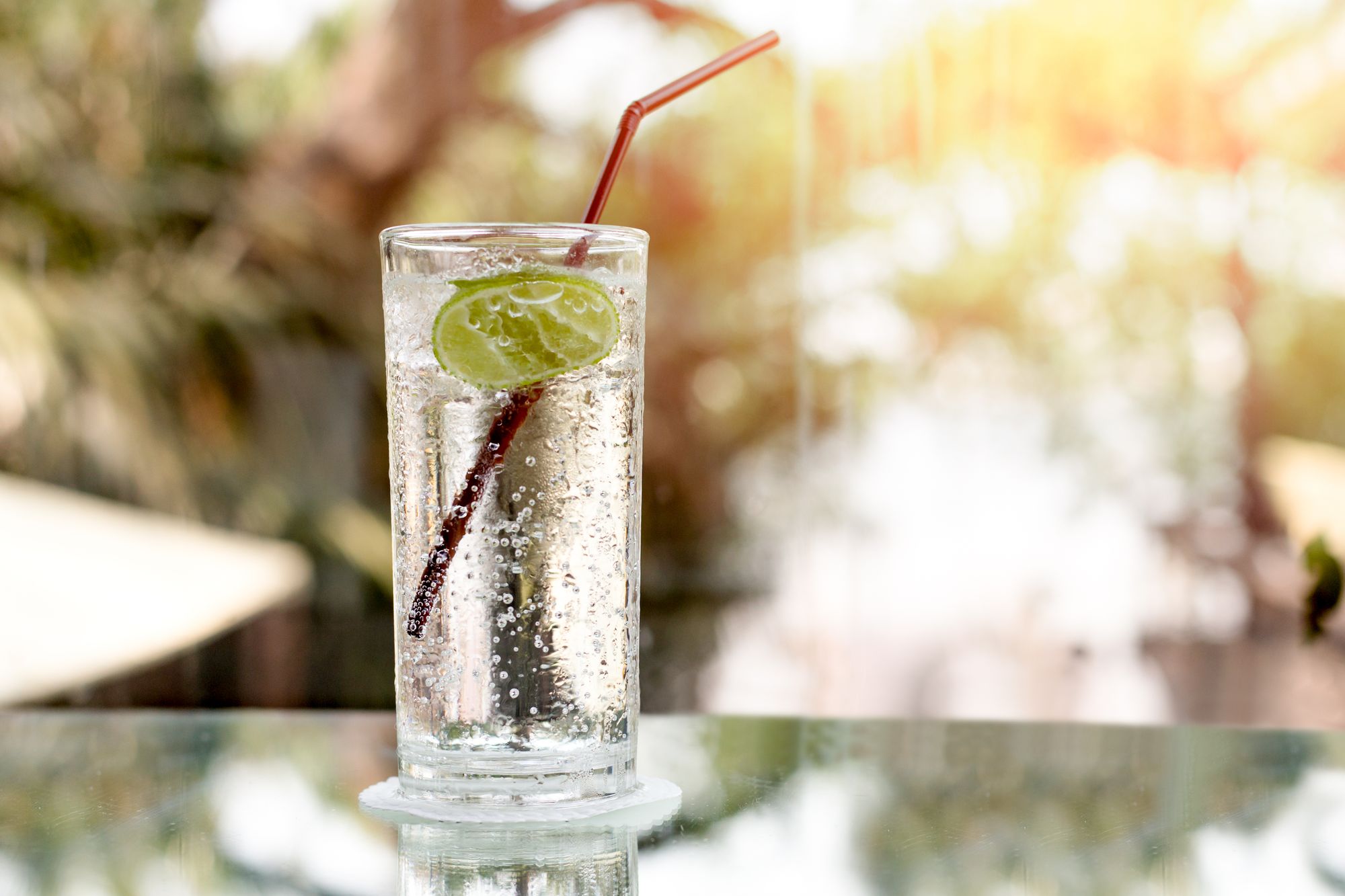
Emerging research suggests a potential association between the consumption of carbonated beverages and gastrointestinal distress. A study published in the journal Nutrition, Metabolism & Cardiovascular Diseases revealed a possible link between carbonated drinks and stomach discomfort, particularly when consuming 300 milliliters or more. Furthermore, there is some evidence indicating that the intake of carbonated soft drinks may elevate the risk of pancreatic cancer. While further investigation is needed to fully understand these relationships, it is prudent to be mindful of the potential effects of carbonated beverages on digestive health.
7) Alcohol

Regularly consuming excessive amounts of alcoholic beverages, including beer, cocktails, or wine, can disrupt the balance of gut bacteria and lead to an overgrowth of unhealthy bacteria, resulting in inflammation, according to Joan Salge Blake, EdD, RDN, a nutrition professor at Boston University and the host of the popular nutrition and wellness podcast, Spot On! Furthermore, Dr. Salge Blake explains that chronic alcohol abuse can harm the cells lining the gut, increasing its permeability and allowing bacteria and their toxins to leak into the bloodstream. The 2020–2025 Dietary Guidelines for Americans define moderate drinking as a maximum of one drink per day for women and two drinks per day for men. A single drink is equivalent to 12 fluid ounces of beer, five fluid ounces of wine, or 1.5 fluid ounces of 80-proof liquor like rum or vodka. Adhering to these guidelines can help minimize the negative effects of alcohol on gut health.
8) Some Caffeinated Teas
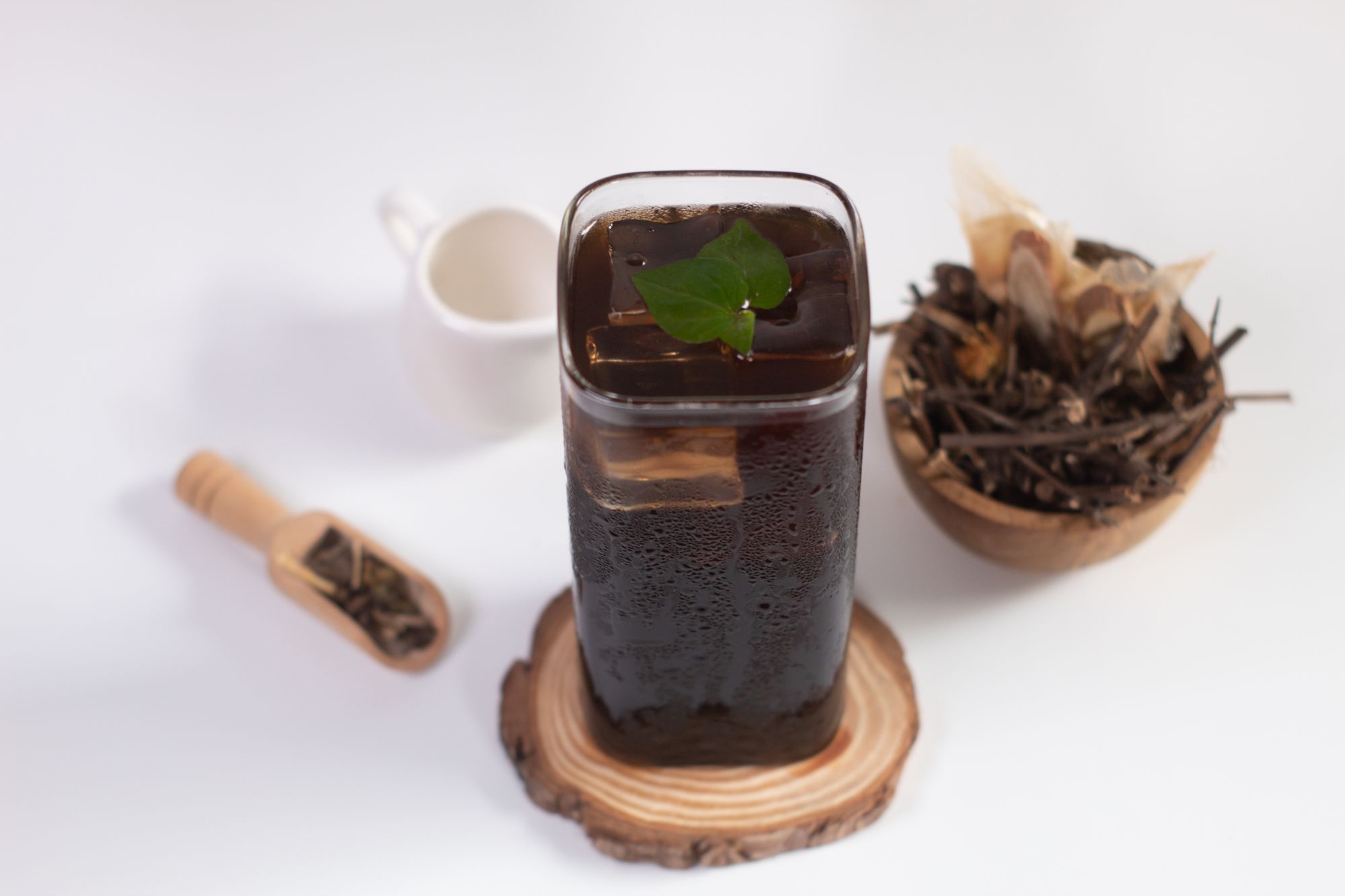
Teas that are caffeinated, such as green and black teas, have the potential to elevate stomach acidity, which can result in heartburn for certain individuals. Furthermore, caffeinated teas share similar concerns as mentioned earlier with coffee. If you have a fondness for tea, choosing herbal or decaffeinated options might be preferable. Interestingly, peppermint tea has shown promise in supporting digestion. Multiple animal studies and a few human studies suggest that peppermint tea may offer pain relief and contribute to stomach comfort.
9) Chocolate Drinks
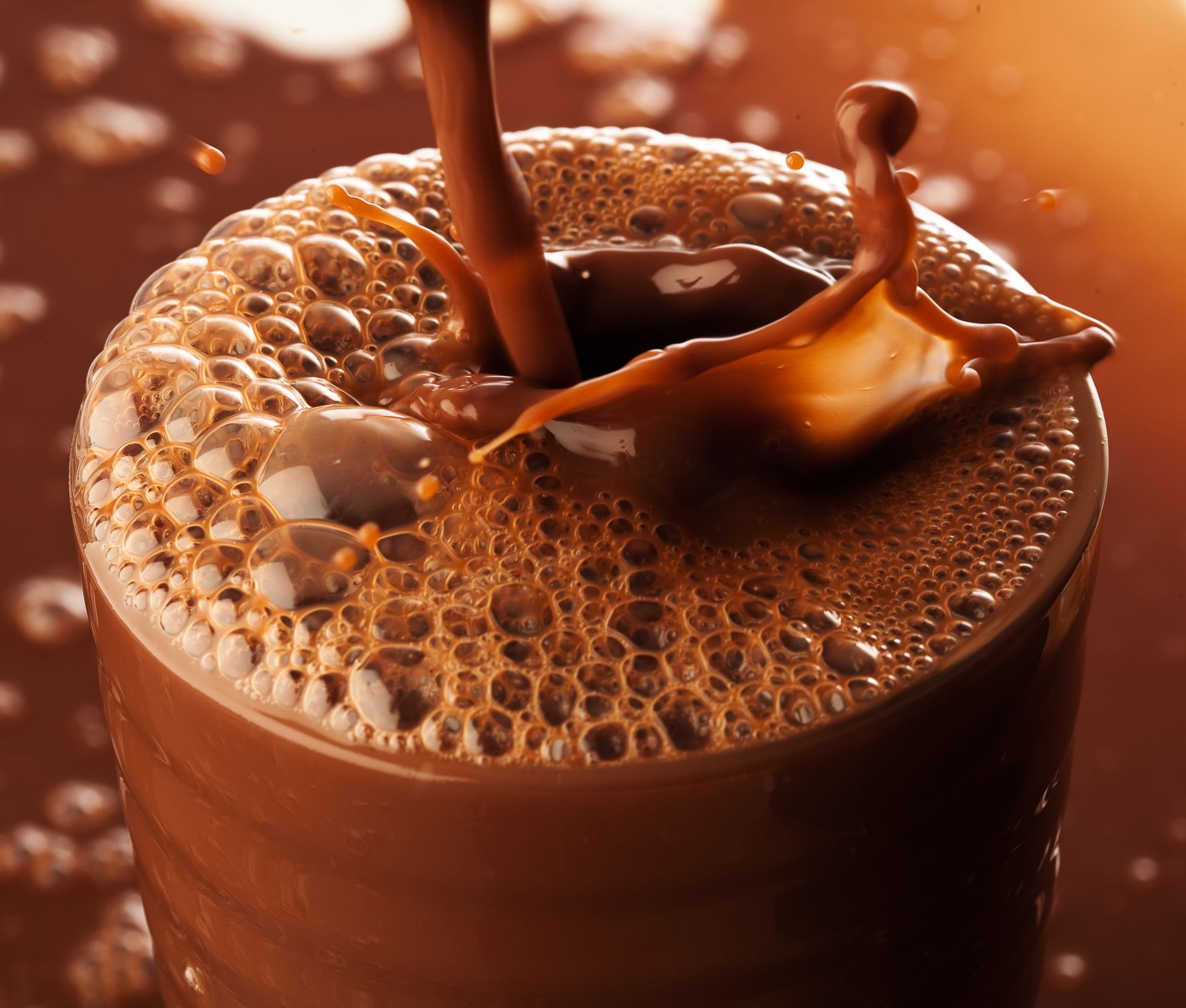
For certain individuals, consuming chocolatey drinks can trigger acid reflux, a condition in which stomach acid flows backward into the esophagus, resulting in heartburn. If you experience acid reflux episodes more than twice a week, you may be diagnosed with gastroesophageal reflux disease (GERD), which is a more severe form of acid reflux. Additional symptoms of GERD include swallowing difficulties, coughing, regurgitation of food or sour liquid into the mouth, wheezing, and chest pain, particularly when lying down after eating. According to the Academy of Nutrition & Dietetics website, certain foods, including chocolate, can worsen GERD in some individuals and potentially trigger flare-ups. If chocolatey drinks exacerbate your acid reflux or GERD symptoms, it is advisable to avoid consuming them.
10) Artificially Sweetened Beverages
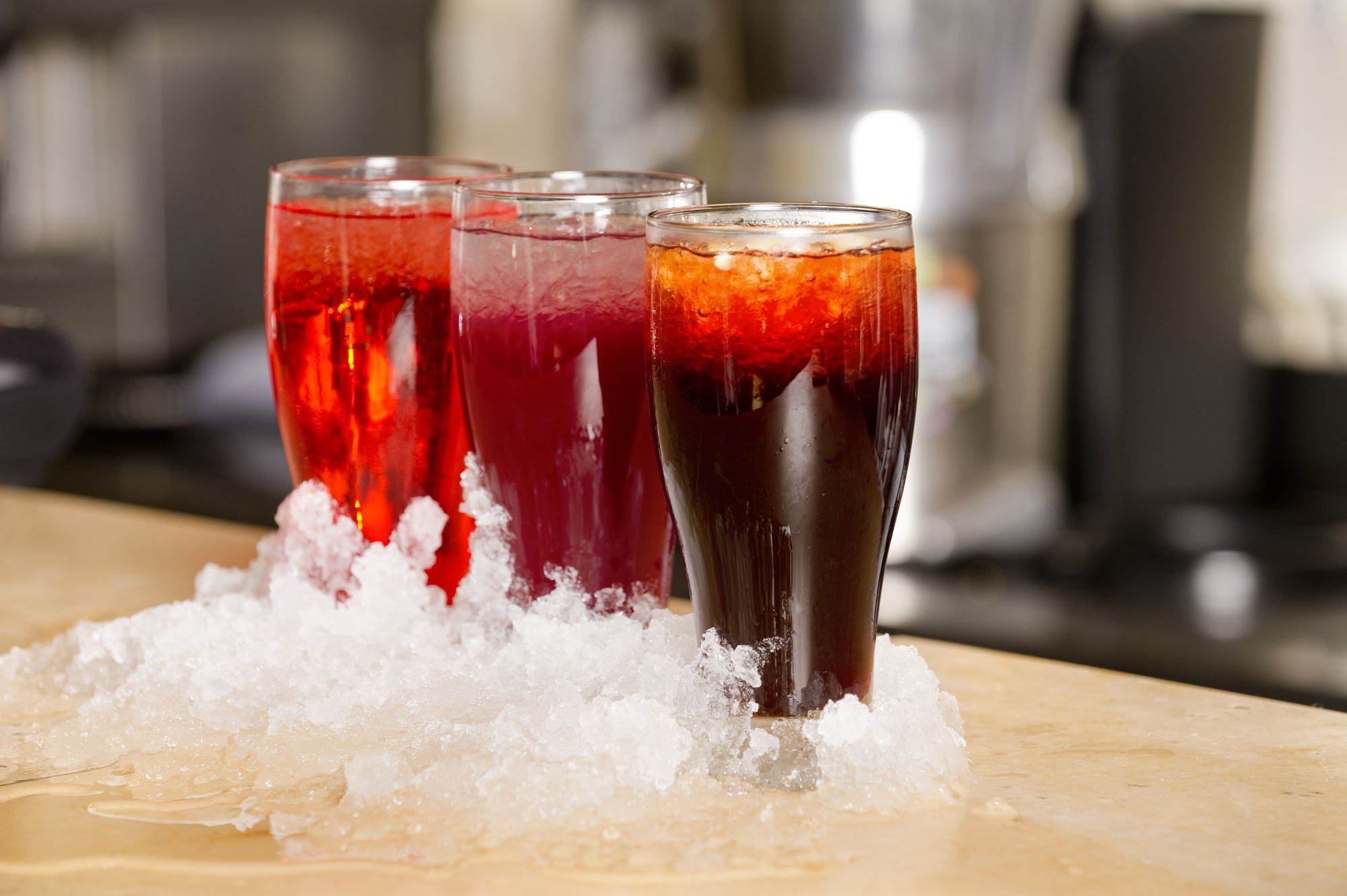
When aiming to monitor calorie intake, it's common to seek out zero-calorie beverages sweetened with artificial sweeteners like aspartame and sucralose. However, it's important to be aware that these ingredients can potentially cause unpleasant gastrointestinal symptoms such as flatulence, bloating, and diarrhea in some individuals. Moreover, certain studies suggest that artificial sweeteners might disrupt the balance of the gut microbiome. If you find yourself sensitive to these artificial sweeteners, it's advisable to opt for plain water or flavored sparkling waters that are free from artificial sweeteners. Another alternative is to choose a probiotic soda as a replacement for your preferred diet drinks.

